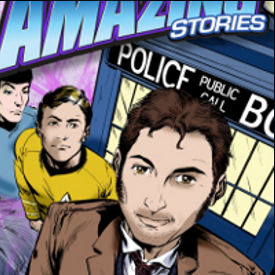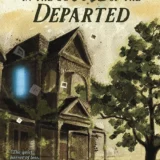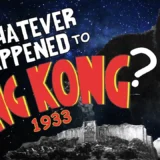Over the last year or so, I’ve noticed something when I’ve conversed with people (in person or through email), posted things on my blog, or left comments on someone else’s blog. We may be using the same words, but what we mean by those words isn’t always the same. This is especially true when discussing the changes in the publishing world.
So in the interest of clear communication, I’m going to offer my definitions of some common terms. These won’t necessarily be your definitions, and that’s fine. We can discuss, debate, and split hairs in the comments section. My intention is to avoid confusion and unnecessary controversy. I’ll post a review next week, but before I do I wanted to make sure we were all sp.
First, I want to distinguish between independently published or indie published as it’s often called, self-publishing, and vanity publishing. For years, self-publishing had a stigma attached to it that it hasn’t entirely shaken. The digital revolution has changed that to a great deal. Often the terms “indie published” and “self published” are used interchangeably. I want to make a distinction between them. Before I do that, I want to deal with vanity publishing so we can get that out of the way.
Vanity publishing is when you pay for the production costs and usually sign an often high percentage of any sales over to the publisher. These type of deals are usually accompanied by extravagant promises of editing services (which cost additional money) and/or national distribution. Promises which turn out to be empty. Vanity publishers exist to separate gullible writer wanna-bes from their money. I have nothing but contempt for these kinds of scams and won’t deal with vanity press publications here.
Now on to the distinction between indie and self published books.
One of the criticisms against books that aren’t published by “real” publishers is that they aren’t edited, or copy-edited, or they have amateurish cover art, or…you get the idea.
And there’s a great deal of truth to some of that criticism.
But only some of it. Yes, there are a number of authors who publish their own works before those works are ready to be seen by the rest of the world. There are a number of reasons why these people do this. Some are impatient. Others have been told by Aunt Bertha that they write at a professional level and should publish their blog posts/stories/poems/essays/ransom notes for everyone to read. Some can’t get their minds around the idea that what they’ve written isn’t Literature for the Ages. I could go on, but I’ll refrain.
These people are the ones who “self publish” by my definition. They, for whatever reason, do everything by themselves. They don’t wait. They refuse to pay for an editor or decent cover art or copy-editing. They don’t even have beta readers. Or if they do, they either don’t listen to the beta readers’ comments or they have beta readers who know nothing about writing. Or their beta readers are close friends and relatives who don’t have the courage to speak the truth: This story/novel/memoir/whatever needs work before it’s ready to be published.
Independent authors, on the other hand, strive to turn out a quality product. Many of these authors are also traditionally published. Some still publish through the major publishers and only indie publish something that they can’t sell to a traditional publish (probably for marketing reasons rather than quality). Or they’re indie publishing their backlist. These are authors who understand what needs to be done to get a book ready for publication and see that it gets done.
They are joined by a growing number of authors who, while not necessarily traditionally published, also understand the need for editing, copy-editing, good cover art, intriguing blurbs, and other things that make the difference between a sale and a pass-over. Some are limited by finances to what they can afford in terms of hiring professionals to assist, but they do everything they can to turn out a professional product. They get someone else to at least give their work a critical reading. They buy the best cover art they can afford. They check the formatting on what they publish and correct any mistakes.
They have a professional attitude, one that shows in the quality of what they publish. These authors may assemble a team to help them accomplish aspects of publishing the author can’t and pay their team members a fair wage. What separates these folks from vanity publishers is that they are in charge and they decide what they will pay or not pay for. And they publish themselves, not try to sell their services to suckers.
This is what distinguishes a self-published author from an indie author from a vanity author. At least as far as discussions here are concerned.
A couple of other terms need to be defined as well. First is gatekeeper. There are some people who consider editors to be gatekeepers, and they can certainly serve that function. But I want to make a distinction between people who won’t publish a book because the book isn’t ready and those who won’t publish a book for other reasons that have nothing to do with the quality of the product. Some editors fulfill both roles.
I don’t consider a person who won’t publish a book for quality control reasons to be a gatekeeper. Rather, I’m going to define a gatekeeper to be someone who rejects a book for other reasons. Either the book doesn’t promote the “proper”
Poltical/social/theological/philosophical agenda or the marketing department doesn’t know how to market the book. The book could mix genres or it might not easily fall into any clear-cut marketing genres. When a book is well-written, even articulate, and can’t be published for reasons that have nothing to do the writing itself, then chances are a gatekeeper has probably been involved in the process somewhere. And what I mean by “can’t be published” in that last sentence is that the author has exhausted all potential markets, not tried one or two and given up after being rejected.
I am all for someone who is objective telling a writer “This book isn’t ready yet. You need to fix the following…” It needs to happen, and not just with indie published books. I’ve seen some real dreck come out of the major houses. Like the ebook by a major thriller writer, a Christmas novella, that was padded by about 100 pages. The publisher simply reprinted the last 100 pages of the story and stuck them onto the back of the book, making it appear to be a full length novel. Quality control needs to happen at all levels of publishing, from the biggest New York publisher to the newbie who has decided to go indie. Let me state it as clearly as I can: I am completely in favor of quality control.
I am not in favor of gatekeepers as I’ve defined them. Let the market determine what will sell. Let readers decide for themselves if an author’s political/social/philosophical views are worth reading. Let that quirky book that no one in the marketing department can figure out how to promote have time to find its audience.
Those are the some of the most common terms I’ll use in this column. I realize that your definitions may be different. That’s fine. We can discuss them. We’ll probably add to the list of terms as we go along. And that’s just fine.
Next week, I take a look at an indie published book and give an actual review.









Recent Comments